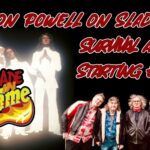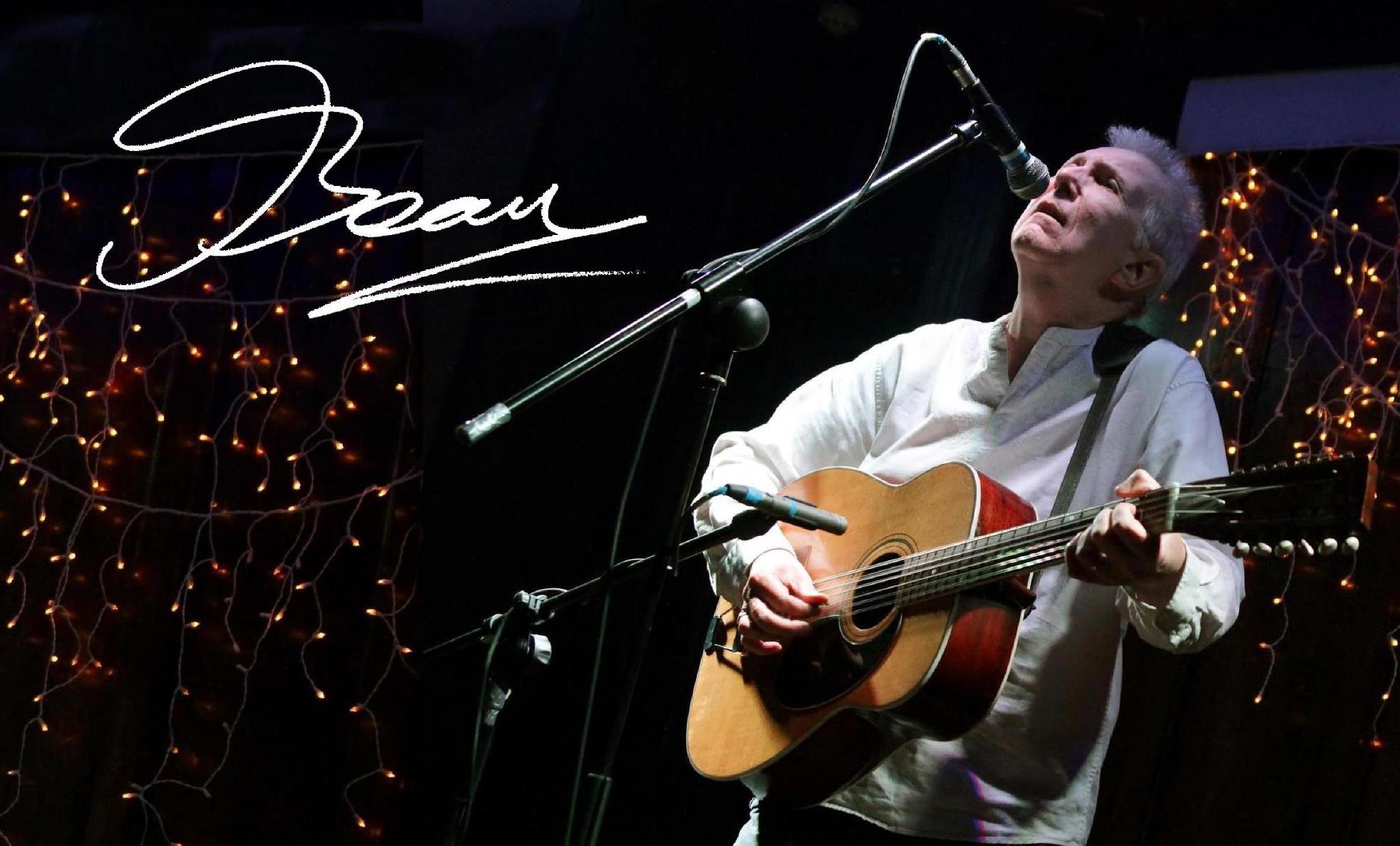
Beau (photo by Shay Rowan)
About to turn 79, Trevor Midgley, alias Beau, is still sharpening his pen like a whetstone to the skull. His latest album, Palace Of Light, is what happens when someone with a memory, a conscience, and a vintage Harmony 12-string watches the twenty-first century roll past unfold like a slow-motion farce in formalwear. In this interview, Beau defends scepticism, explains how satire is survival, and recalls when he stopped trusting high-gloss production and started trusting words. No hashtags, no trending topics, no marketing teams: just songs, and that rarest of qualities in 2025: perspective.
Palace Of Light marks your nineteenth release with Cherry Red Records. What continues to spark your creative flame after so many albums, and how do you approach each new project with fresh eyes and ears?
To be honest, my “creative flame” never needs sparking! As a good chunk of my material is – and always has been – inspired by the politics and attitudes of the time, it’s simply a matter of choosing where and how to focus the spotlight!
But in a sense, there are no new projects – everything’s a continuing process. I don’t write every day, but I am forever noting down thoughts, phrases, scenarios, ludicrousies etc. that I figure might sometime in the future make decent subject matter for a song. It’s when I get “the itch” that writing phases proper begin; and if I’m not careful, they can run away with themselves.
“The itch” is when I know it’s time to hit the keyboard, and “itching” can last several days or even weeks. I remember in 2016 when I was writing the songs that went onto “An Original Thought”, I came up with eighteen songs in fourteen days. It was becoming obsessive, so on Day 14 I had to say to myself, “Stop! Leave it! Just concentrate on honing and rehearsing what you’ve got!” Which is what I did.
Still kept jotting down those inevitable thoughts and phrases and possible scenarios though!
Your songwriting has always been both razor-sharp and deeply reflective. With this album, you navigate a vast landscape of contemporary themes. Was there a unifying moment of inspiration for the album, or did the songs emerge as a kind of mosaic of modern concerns?
The latter. But if there’s an underlying impetus or theme driving the set, it’s the disproportionate influence of fringe lunacies on contemporary society; which are, I have to say, in the main enabled by social media on the one hand and facilitated on the other by our 21st Century crop of pathetically acquiescent political pygmies. But we must not despair…
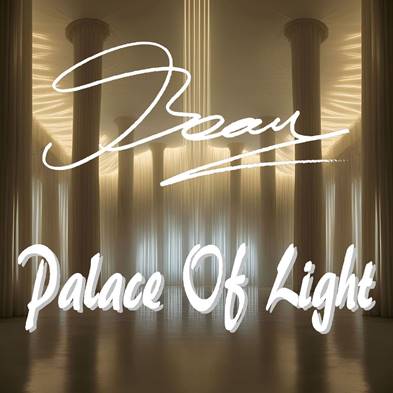
Your lyrics oscillate between the wryly sardonic and the profoundly serious. Is there a particular lens through which you view the world when writing, or do you simply follow where the stories take you?
Good question! I’ve always had an enquiring nature and that’s been allied to a natural scepticism (which is why I became a convinced atheist at the age of ten!). And I’ve always had a love of words. Possibly on account of age, nowadays my scepticism does on occasions morph into cynicism – which I do truly regret. But then I look at the world around me, and how it’s ordered, and by whom…
The lead track ‘I Plagiarise Beethoven’ is a bold title, layered with meaning. What prompted this composition?
Oh, I can’t claim anything too profound for “Beethoven”! It’s just a fun thing; though I suspect there’ll be quite a few who don’t spot until the end how the short instrumental figures dotted throughout are actually the famous opening notes to Beethoven’s 5th!
Your trusted companion, the 1968 vintage Harmony 12-string guitar, has been by your side for decades. What is it about this instrument that makes it irreplaceable in your creative process?
I got very lucky.
When in late ’68 my first 12-string was stolen out of the van at Reading University, I had to get another tout suite as I had a shedload of commitments booked. This came right at the end of the “12-string obsession” that began a few years earlier when The Beatles sparked interest in the instrument through their use of it on “A Hard Day’s Night”. To put it mildly – and to my good fortune! – the shops were now awash with the things as players realised if you just play the box using the same technique as you would a 6-string, interest in the 12 can very quickly wane!
So, Kitchens in Leeds were able to offer me a good deal on this brand new US-made Harmony H1270 (which they’d apparently had in stock for about a year!).
I’m going to have to preface the next bit with an explanation…
My interest in the 12-string was kindled not by The Beatles, but by Lead Belly, the self-styled “King of the Twelve-String Players of the Whole World”; which he was.
In those days there were two accepted tunings for a 12-string; European tuning, which had strings five and six in unison and featured light-gauge stringing, and the so-called Mexican tuning, favoured by Lead Belly, where strings five and six were octave and the whole instrument was tuned four semitones below concert pitch – i.e. in the key of C. C-tuning – yes, because of the Lead Belly influence, but also because of the deeper and more powerful resonance the guitar produced – was always my preference.
A big plus was that American-made 12-strings of the time typically had the nut and bridge cut to accommodate the much heavier gauge strings that C-tuning demanded.
So, I got the Harmony home, loaded it with C-tuning Mohawk strings (then common, now long-gone!), and began to play. The sound was stunning. How come such a big guitar could weigh in at only 4½lbs? The resonance was astonishing, and the first thing I played was an arpeggio. It took me half-an-hour or so to work that arpeggio into the song “Welcome”, which was the opening track on my first album for Dandelion Records.
(Matter of interest, John Peel always said he could distinctly hear horns coming out of the guitar’s harmonics on “1917 Revolution”!)
The guitar’s had very little modification over the last fifty-seven years, and still sounds as good as ever today. I’ve played and owned many high-end twelves over the years – most OK, some excellent – but none have ever matched the sound of the H1270 at full throttle.
I should let you into little secret! In case anything ever happens to Big 12, I do have a further pair of Harmony H1270s! All three are from the same year – 1967. Scruff has obviously had a somewhat harder life than the rather pampered Big 12, but plays like a dream. Smartarse has led a seemingly sheltered existence and in no way shows his age, but again can thunder with the best. All three have had their nuts appropriately-cut from new (a phrase I’m guessing you never thought you’d hear on Strange Brew!).
So, so far as it can be in an uncertain world, the future is secure!
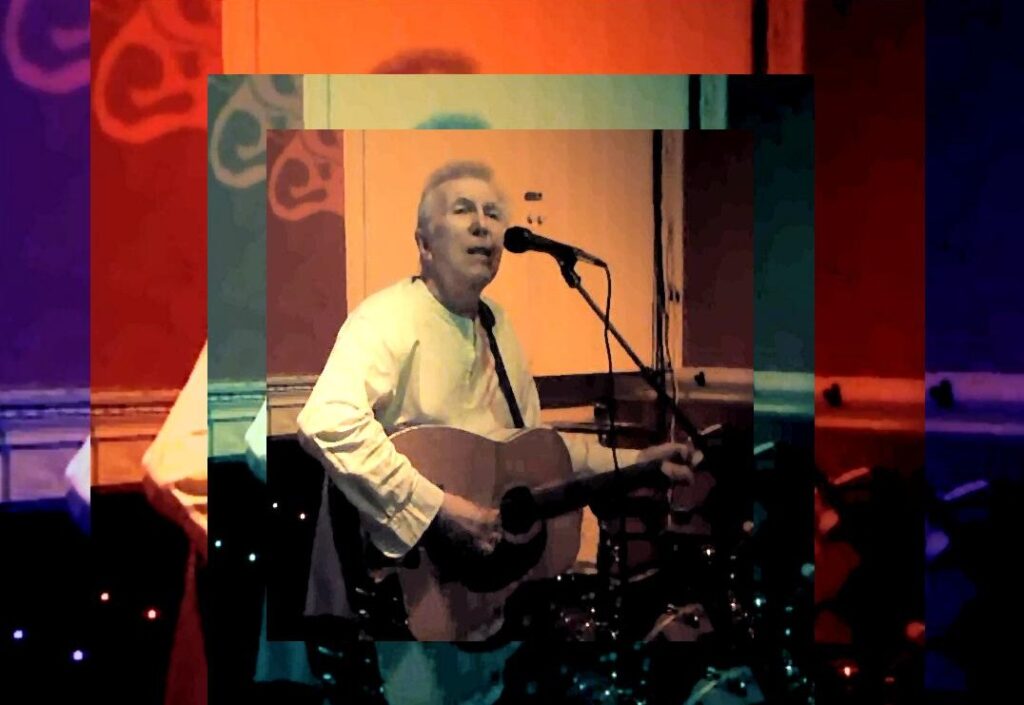
Many of your lyrics read like finely chiseled short stories or wittily acerbic essays set to music. Do you ever begin with the words first and let the melody find them, or is it always a symbiotic process?
In 99% of my songs, the lyric comes first. Even though the first music I ever wrote was a solo piece for piano – I was nine at the time – words have always been my main driver. I can literally count on the fingers of one hand songs where melody has been the initiator. First come the words; then (hopefully!) a tune that will carry and support the lyric; then finally an arrangement to meld the two into a cohesive whole. At least, that’s the big idea!
People have often asked why these days I mainly record frugally, with just voice and twelve-string guitar? The answer to that question goes back about twenty years.
(I have to tell you by the way that, though the end result appears simple, much work goes into producing that simplicity! Remember Dolly Parton’s famous quip, “It costs a lot of money to look this cheap!” In a different context, I know exactly where she was coming from!)
In the early noughties, a Japanese label re-released both my Dandy albums. Unbeknown to me, their artwork people had helpfully decided to include lyrics with their packages. When I received copies of the released CDs and checked their interpretations, it was fascinating!
For the first “Beau” set, I found they’d got them 90% or so correct. Not bad, over all. However, “Creation” was a very different story. Here, and particularly on the full-band performances, transcription accuracy was 50% accurate at best. And when words are my songs’ raison d’être, that was regrettable to put it mildly!
I resolved this would never happen again. For better or worse, the words would always have primacy. And there was only one way to be sure that happened. The acronym applies – KISS!
I suppose because I’m essentially a wordsmith, there have been occasions when kind and well-meaning people have referred to my songs as poetry. I have to tell you, personally I rather bridle at this description; that frankly I’ve always thought there’s something decidedly off-putting and pretentious about folks who self-style as a poet! I’d never dream of referring to myself in that way.
I am and always have been just a songwriter; short and simple. That’s all.
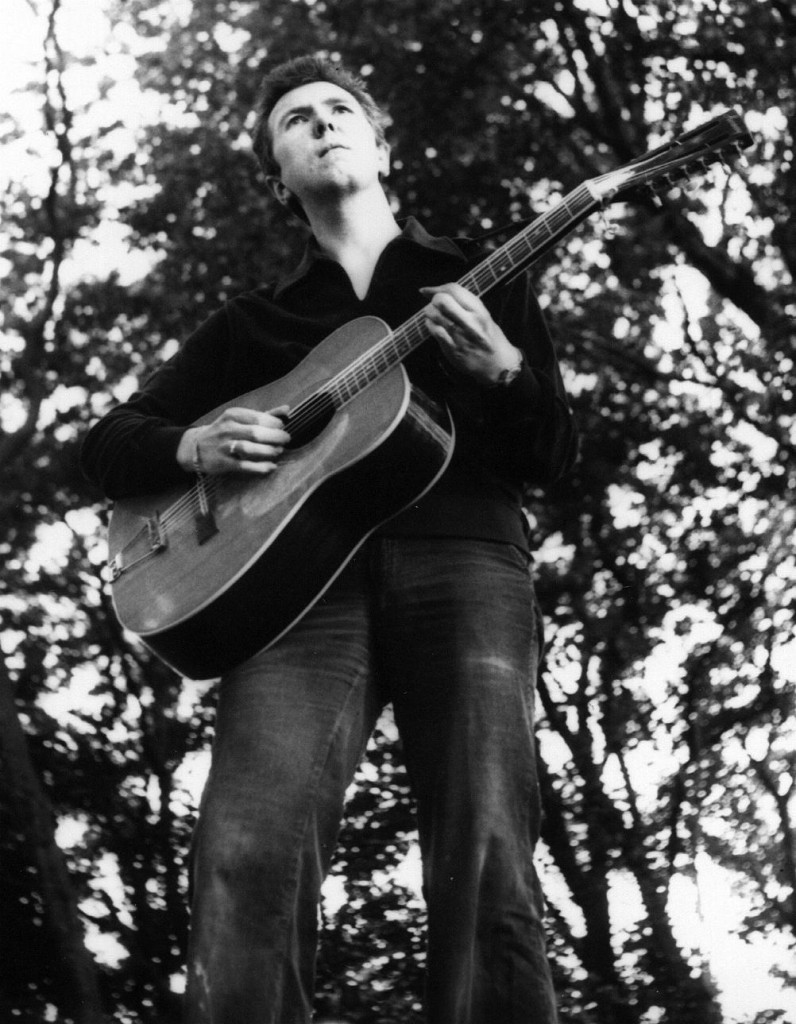
There’s a rich sense of history running through Palace Of Light, whether in social critique, literary references, or reflections on the past. Do you consider yourself more of a chronicler of our times, a satirist, or something else entirely?
Certainly not a chronicler, but I would accept my songs in the main reflect – albeit sardonically! – my take on the times in which we live. I have to be careful, though.
Just as today’s newspapers are tomorrow’s fish and chip wrappings (does that still apply by the way, or does health & safety forbid it on grounds the ink is toxic?), a song that simply reports on a current news item has a very short shelf-life; and anyway, that’s the preserve of the journalist, not the songwriter. I try to ensure my pieces are in the main informed by current events, but are not specifically about them. The principle behind an event long outlives the happening itself.
If you search though my hundreds of songs – please don’t! – I’m sure you’ll find the odd exception; but they’re few and far between. Obviously this doesn’t apply to historic topics which are basically what they are (or at least, what they’re understood to be!).
Given that the world of music has changed so drastically since your earliest recordings, how do you feel about the state of songwriting today? Are there contemporary artists or lyricists you admire?
Bob Dylan was asked why his “Theme Time Radio Hour” show featured so many artists and recordings from the distant past. “Because,” he replied, “there’s been much better music over seventy years than there is around right now!” So you ask, are there any contemporary artists or lyricists I particularly admire? Not really. I tend to despair at the almost complete lack of erudition in so many present-day songs; the false rhymes, the clumsy structures (and the boringly-repeated obscenities that appear central to certain forms). But most of all, I lament the demise of wit!
I love wit! From antiquity, through Shakespeare and up until relatively recently, it’s been around in spades. In my own time and sphere, we had Tom Paxton’s “Forest Lawn” and Phil Ochs’ “Draft Dodger Rag”. Before that, we had the glittering brilliance of Noël Coward; the sharp humour of Tom Lehrer and Michael Flanders; and of course the perceptive intelligence of the recently-deceased Kit Hesketh-Harvey. Witty, erudite, intelligent creators to a person (not “to a man”, you’ll notice, even though they all were/are; unless of course someone’s recently declared otherwise…).
But then I’m old and notoriously uncool. So, to repeat my direct answer, not really!
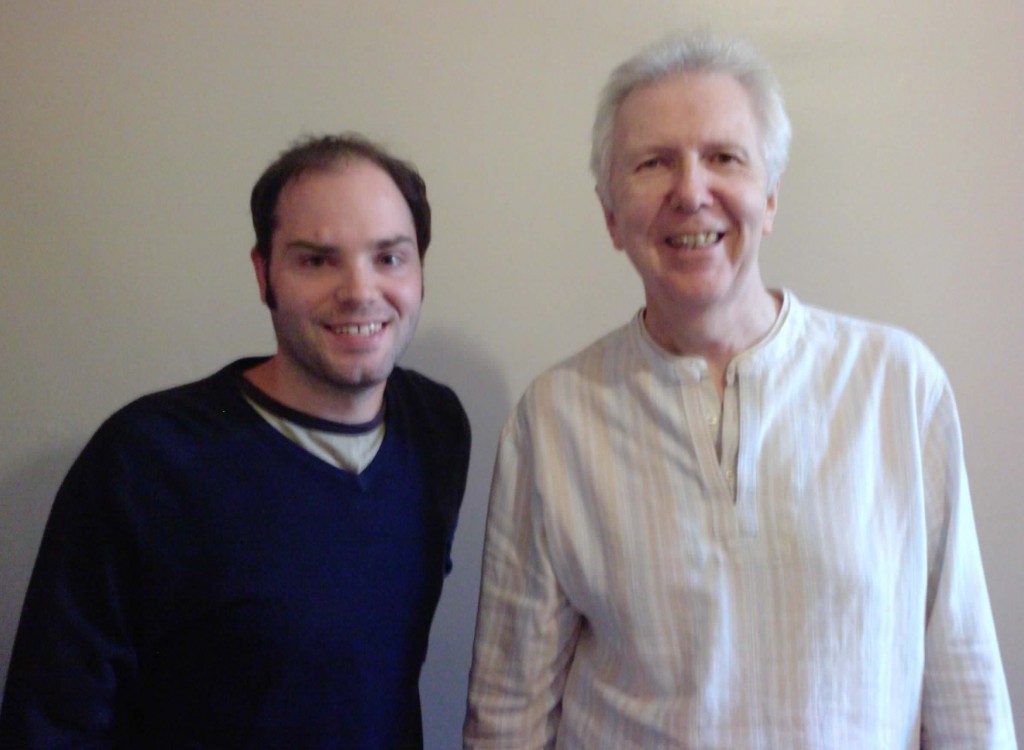
As someone who has seen the industry evolve over many decades, what are the biggest lessons you’ve learned, both about music and about human nature?
That everything – moralities, traditions, acceptabilities, relationships, technologies, literally everything – constantly evolves. That salesmanship is more important than ability. That change can be good, but often isn’t. That freakishness so often masquerades as art, and is applauded for doing so. That absolutely nothing can be relied upon to remain the same.
If you had to sum up Palace Of Light in a single sentence, perhaps as an epigraph to accompany the album, what would it be?
“Palace Of Light” is a satirical reflection on the distorted realities and values in 2020s Britain.” How’s that?
Further information
“Palace Of Light” by Beau is released on 25 April 2025 by Cherry Red Records
